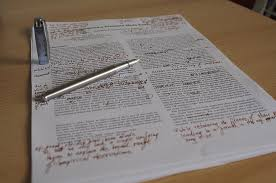
Understanding Content Edit
Understanding Content Edit
By Lauren Shmelz. Reposted with permission from Write divas
What is a content edit?
A content edit of a manuscript is an edit that focuses strongly on story, plot, inconsistencies, character development, structure, pacing, and flow. Although grammar and punctuation are also part of the process, a large effort is placed on the creative elements instead of the technical ones.
The primary goal is to edit with a creative touch, and the majority of the marks will have a suggestive tone. Each content edit can be individualized from editor to editor and author to author. A strong content editor will have a concentrated eye on storytelling and understand what the reader will interpret while reading an author’s book. Since each content edit can be customized to cater to the author, no content edit will be the same.
Typically this edit comes after the author feels his or her book is ready to have a solid technical critique from a professional and after it’s been through a developmental edit if needed.
Content Editing vs. Beta Reading
Oftentimes content editing and beta reading can be thought to be the same. The biggest and most significant difference between the two is that the majority of editors have professional experience in publishing. They have specific training in all areas of editing that can benefit the author. Beta readers, not to be discredited, are excellent if an author is looking for a reader-type critique. Many beta readers read for pleasure and pastime. And there are no specific qualifications to beta read.
What Will You Get?
Authors who get a manuscript assessments before editing begins will have a good idea of what type of edit they will need. This is a good time to decide if a content edit is right for you. Usually in assessments, a detailed rundown is given addressing the areas of concern that need work. A content editor will effectively tackle them one by one with the author.
In last week’s article by Diva Janine, she discussed manuscript assessments and the different points editors will cover: plot, pacing, setting, characterizations, and voice and tone. All of these elements directly translate into a content edit. A content editor with a keen eye will make sure your work is clean, tight, and well-paced. Authors may also ask content editors for professional opinions on aspects they are unsure about.
Content editing involves a lot of questions for the author about what they want their readers to see when they read the finished book. If the author wants the readers to visualize the grand world he or she built but feel the story could use some help showing the bigger picture, a content editor can help the author express those thoughts. If the trouble is with backstory and character motivation, a content editor will point the issues out and offer suggestions for improvement.
Generally, a content editor will talk to the author to gain an understanding of the author’s concerns before delving into the edit. The editor will also keep in close contact with the author during the edit, keeping the author abreast of how the edit is going and when other concerns pop up as the work progresses. For example: fact checks, plot holes, story line suggestions, tense, character development, and streamlining.
A content editor will also help cut down wordiness, creative dialogue tags, nonsensical phrases or sentences, and confer with the author on whether to add more depth to scenes or plotlines. The editor will identify mundane detail and advise the author on how to better describe scenes with the show vs. tell method.
Independent Publishing vs. Publishing Houses
There is a huge difference in content editing between independent authors and publishing houses. An independent author pays an editor to edit the content of the story while retaining complete control of the process. A publishing house will chose what will be edited and what will not.
Content editing at a publishing house can range from the author contributing to the process to almost no contact with their editor. A content edit at a publishing house may consist of the author approving certain edits, but the final edit is a decision between the editor and the publisher.
On the independent level, content editing for the author can be a very freeing and creative collaboration between the author and the editor. The editor is working for the author and takes direction from the author. All edits are suggestions for the author, nothing is concrete until the author accepts or rejects the edits. This can be extremely liberating for the author, especially if they have had bad experiences in the past.
Overall a content edit is as vital as any edit (developmental, copy editing, and proofreading.) Authors can improve their story without sacrificing their style and make their edit what they need so that their story rises above the rest.